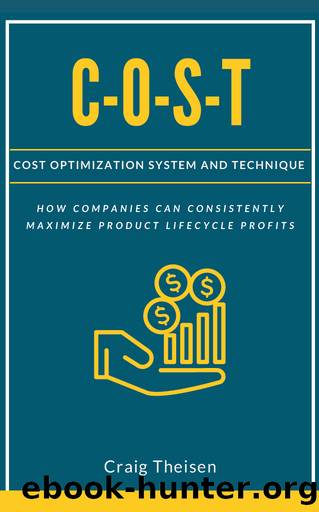C-O-S-T by Craig Theisen

Author:Craig Theisen [Craig Theisen]
Language: eng
Format: epub
Publisher: Business Expert Press
Published: 2022-03-04T00:00:00+00:00
Figure 14.1 Talents, skills, and knowledge definitions
Chris pointed at the slide and said, âWe pulled these definitions from an on-line dictionary.
A skill is a proficiency, facility, or dexterity that is acquired or developed through training or experience.1 Skills can be transferred from one person to another. In Mikeâs example, keeping your eye on the baseball is a skill that can be learned and transferred among people.
Knowledge is the state or fact of knowing. It is a familiarity, awareness, or understanding gained through experience or study.2 Knowledge can be factual or experiential. Using Mikeâs baseball example again, it is a fact that to hit a baseball with a bat, you best keep your eye on the ball. Hitting the baseball with a bat as it is hurling toward you is experiential knowledge.
Just because someone knows how to keep their eye on the baseball to hit it, that does not mean they have developed the skill to do so proficiently. The skill takes practice to develop whereas the knowledge can be taught in a sentence.â
Chris looked at the group and said, âIt is common for companies to hire people to fill positions based on their skills, knowledge, and experience. Experience is related to skill and knowledge but doesnât guarantee them.
In addition to hiring a person for their skill and knowledge, selecting a person whose talents align with the job is likely to lead to that person being more successful in the job.
Talent is a marked, innate ability. It is a natural endowment or ability of superior quality.3 You could say you are born with your talents. They cannot be taught or learned through study. Using Mikeâs example again, someoneâs fast coordination between the eyes, brain, and hands are innate qualities.
There are many different types of talent. A quick search on the Internet reveals more than 30 talents. Examples of talent are musical, artistic, analytical, relationship building, and influencing. People possess some degree of all the different types of talent and have a higher degree of some talents and less of others. For example, I have extremely low musical talent but high analytical talent. I would not be selected to play in an orchestra but would do a nice job laying out the dimensions of their stage.
People can develop their talents through practice. For example, a person with high, musical talent will not be able to play a Mozart piece flawlessly without first developing their musical talent. Top musicians have practiced their creed for years. Also, a person with high musical talent is likely going to be able to play the Mozart piece more quickly and better than a person with low, musical talent. A person with low, musical talent may not have even developed that talent recognizing early they were not musically talented.â
There were nods of understanding among the group.
âWith this in mind, we developed a list of 10 talents that enable cost optimization managers to excel in the role.â
Chris advanced the slide and continued speaking.
Download
This site does not store any files on its server. We only index and link to content provided by other sites. Please contact the content providers to delete copyright contents if any and email us, we'll remove relevant links or contents immediately.
Kathy Andrews Collection by Kathy Andrews(10544)
The remains of the day by Kazuo Ishiguro(7572)
Spare by Prince Harry The Duke of Sussex(4217)
Paper Towns by Green John(4175)
The Body: A Guide for Occupants by Bill Bryson(3813)
Be in a Treehouse by Pete Nelson(3231)
Harry Potter and the Goblet Of Fire by J.K. Rowling(3067)
Goodbye Paradise(2973)
Never by Ken Follett(2905)
Into Thin Air by Jon Krakauer(2711)
The Remains of the Day by Kazuo Ishiguro(2626)
The Genius of Japanese Carpentry by Azby Brown(2613)
The Cellar by Natasha Preston(2603)
Drawing Shortcuts: Developing Quick Drawing Skills Using Today's Technology by Leggitt Jim(2535)
120 Days of Sodom by Marquis de Sade(2444)
Architecture 101 by Nicole Bridge(2356)
Machine Learning at Scale with H2O by Gregory Keys | David Whiting(2309)
The Man Who Died Twice by Richard Osman(2305)
Industrial Automation from Scratch: A hands-on guide to using sensors, actuators, PLCs, HMIs, and SCADA to automate industrial processes by Olushola Akande(2113)
